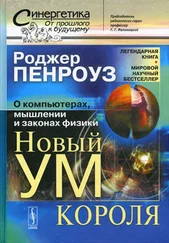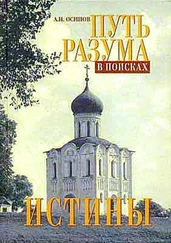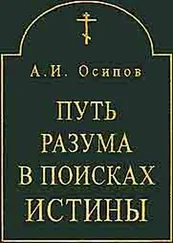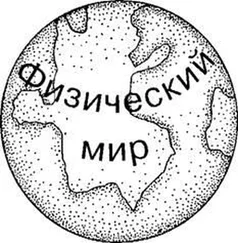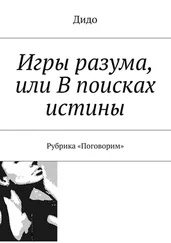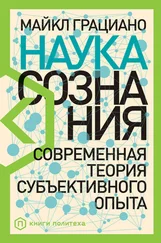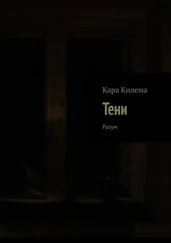[311] Poundstone, W. (1985). The recursive universe: cosmic complexity and the limits of scientific knowledge. Oxford University Press.
[312] Pour-El, М. В. (1974). Abstract computability and its relation to the general purpose analog computer. (Some connections between logic, differential equations and analog computers.) Trans. Amer. Math. Soc, 119, 1-28.
[313] Pour-El, M.B., Richards, I. (1979). A computable ordinary differential equation which possesses no computable solution. Ann. Math. Logic, 17, 61-90.
[314] Pour-El, M.B., Richards, I. (1981). The wave equation with computable initial data such that its unique solution is not computable. Adv. in Math., 39, 215-239.
[315] Pour-El, M.B., Richards, I. (1982). Noncomputability in models of physical phenomena. Int. J. Theor. Phys., 21, 553-555.
[316] Pour-El, M.B., Richards, I. (1989). Computability in analysis and physics. Springer-Verlag, Berlin.
[317] Pribram, К. Н. (1966). Some dimensions of remembering: steps toward a neuropsychological model of memory. В сб. Macromolecules and behaviour (ed. J. Gaito), 165-187. Academic Press, New York.
[318] Pribram, К. Н. (1975). Toward a holonomic theory of perception. В сб. Gestalttheorie in der modern psychologie (ed. S. Ertel), 161-184. Erich Wengenroth, Kohl.
[319] Pribram, К. Н. (1991). Brain and perception: holonomy and structure in figural processing. Lawrence Erlbaum Assoc, New Jersey.
[320] Putnam, H. (1960). Minds and machines. В сб. Dimensions of mind (ed. S. Hook), New York Symposium. Также в Minds and. machines (ed. A. R. Anderson), 43-59, Prentice-Hall, 1964; и в Dimensions of mind: a symposium (Proceedings of the third annual NYU Institute of Philosophy), 148-179, NYU Press, 1964.
[321] Ramon у Cajal, S. (1955). Studies on the cerebral cortex (пер. на англ.: L.M. Kroft). Lloyd-Luke, London.
[322] Redhead, M. L. G. (1987). Incompleteness, nonlocality, and realism. Clarendon Press, Oxford.
[323] Rosenblatt, F. (1962). Principles of neurodynamics. Spartan Books, New York.
[324] Roskies, A. (1990). Seeing truth or just seeming true? Behavioural and Brain Sciences, 13 (4), 682.
[325] Rosser, J.B. (1936). Extensions of some theorems of Godel and Church. Jour. Symbolic Logic, 1, 87-91.
[326] Rubel, L. A. (1985). The brain as an analog computer. /. Theoret. Neurobiol., 4,73-81.
[327] Rubel, L.A. (1988). Some mathematical limitations of the general-purpose analog computer. Adv. in Appl. Math., 9, 22-34.
[328] Rubel, L. A. (1989). Digital simulation of analog computation and Church's thesis. Jour. Symb. Logic, 54 (3), 1011-1017.
[329] Rucker, R. (1984). Infinity and the mind: the science and philosophy of the infinite. Paladin Books, Granada Publishing Ltd., London. (Первое издание: Harvester Press Ltd., 1982.)
[330] Sacks, O. (1973). Awakenings. Duckworth, London.
[331] Sacks, O. (1985). The man who mistook his wife for a hat. Duckworth, London.
[332] Sagan, L. (1967). On the origin of mitosing cells. J. Theor. Biol., 14, 225-274.
[333] Сахаров А. Д. (1967). Квантовые флуктуации вакуума в искривленном пространстве и теория гравитации (Saharov A. D. Vacuum quantum fluctuations in curved space and the theory of gravitation). Доклады Акад. наук СССР, 177, 70-71. Пер. на англ. в Sou. Phys. Doklady, 12, 1040-1041 (1968).
[334] Schrodinger, E. (1935). "Die gegenwartige Situation in der Quantenmechanik". Naturwissenschaften, 23, 807-812, 823-828, 844-849. (Пер. на англ.: J. Т. Trimmer (1980) в Proc. Amer. Phil. Soc, 124, 323-338.) Также в сб. Quantum theory and measurement (ed. J.A.Wheeler, W. H. Zurek). Princeton University Press, 1983.
[335] Schrodinger, E. (1935). Probability relations between separated systems. Proc. Camb. Phil. Soc, 31, 555-563.
[336] Schrodinger, E. (1967). "What is Life?" and "Mind and Matter". Cambridge University Press.
[337] Schroeder, M. (1991). Fractals, chaos, power laws. Minutes from an infinite paradise. Freeman, New York.
[338] Scott, A. C. (1973). Information processing in dendritic trees. Math. Bio. Sci., 18, 153-160.
[339] Scott, A. C. (1977). Neurophysics. Wiley Interscience, New York.
[340] Searle, J. R. (1980). Minds, brains and programs. В сб. The behavioral and brain sciences. Vol. 3. Cambridge University Press. (Также в сб. The mind's I (ed. D. R. Hofstadter, D.C.Dennett). Basic Books, Inc.; Penguin Books Ltd., Harmondsworth, Middlesex, 1981.)
[341] Searle, J.R. (1992). The rediscovery of the mind. MIT Press, Cambridge, Massachusetts.
[342] Seymore, J., Norwood, D. (1993). A game for life. New Scientist, 139, No. 1889, 23-26.
[343] Sheng, D., Yang, J., Gong, C, Holz, A. (1988). A new mechanism of high Tc superconductivity. Phys. Lett., A133, 193-196.
[344] Sloman, A. (1992). The emperor's real mind: review of Roger Penrose's The Emperor's New Mind. Artificial Intelligence, 56, 355-396.
[345] Smart, J. J. С (1961). Godel's theorem, Church's theorem and mechanism. Synthese, 13, 105-110.
[346] Smith, R.J.O., Stephenson, J. (1975). Computer simulation of continuous systems. Cambridge University Press.
[347] Smith, S., Watt, R.C., Hameroff, S.R. (1984). Cellular automata in cytoskeletal lattice proteins. Physica D, 10, 168-174.
[348] Smolin, L. (1993). What have we learned from non-pertubative quantum gravity? В сб. General relativity and gravitation 1992. Proceedings of the thirteenth international conference on GRG, Cordoba, Argentina (ed. R.J.Gleiser, C. N.Kozameh, O.M.Moreschi). Institute of Physics Publications, Bristol.
[349] Smolin, L. (1994). Time, structure and evolution in cosmology. В сб. Temponelle scienziae filosofia (ed. E. Agazzi). Word Scientific, Singapore.
[350] Smorynski, C. (1975). Handbook of mathematical logic. North-Holland, Amsterdam.
[351] Smorynski, C, (1983). "Big" news from Archimedes to Friedman. Notices Amer. Math. Soc, 30,251-256.
[352] Smullyan, R. (1961). Theory of Formal Systems. Princeton University Press.
[353] Smullyan, R. (1992). Godel's incompleteness theorem. Oxford Logic Guide No. 19. Oxford University Press.
[354] Squires, E.J. (1986). The mystery of the quantum world. Adam Hilger Ltd., Bristol.
[355] Squires, E.J. (1990). On an alleged proof of the quantum probability law. Phys. Lett., A145, 67-68.
[356] Squires, E.J. (1992). Explicit collapse and superluminal signals. Phys. Lett., A163, 356-358.
[357] Squires, E.J. (1992). History and many-worlds quantum theory. Found. Phys. Lett., 5, 279-290.
[358] Stairs, A. (1983). Quantum logic, realism and value-definiteness. Phil. ScL, 50 (4), 578-602.
[359] Stapp, H.P. (1979). Whiteheadian approach to quantum theory and the generalized Bell's theorem. Found. Phys., 9, 1-25.
[360] Stapp, H.P. (1993). Mind, matter, and quantum mechanics. Springer-Verlag, Berlin.
[361] Steen, L.A. (ed.) (1978). Mathematics today: twelve informal essays. Springer-Verlag, Berlin.
[362] Stoney, G.J. (1881). On the physical units of nature. Phil. Afag. (Series 5), 11, 381.
[363] Stretton, A. O. W., Davis, R. E., Angstadt, J. D., Donmoyer, J.E., Johnson, CD., Meade, J.A. (1987). Nematode neurobiology using Ascaris as a model system. J. Cellular Blochem., 511 A, 144.
[364] Thorne, K. S. (1994). Black holes & time warps: Einstein's outrageous legacy. W. W. Norton and Company, New York.
[365] Torrence, J. (1992). The concept of nature. The Herbert Spencer lectures. Clarendon Press, Oxford.
[366] Tsotsos, J.K.. (1990). Exactly which emperor is Penrose talking about? Behavioural and Brain Sciences, 13 (4), 686.
[367] Turing, A.M. (1937). On computable numbers, with an application to the Entscheidungsproblem. Proc. Land. Math. Soc. (ser. 2), 42,230-265; исправления в 43, 544-546.
Читать дальше
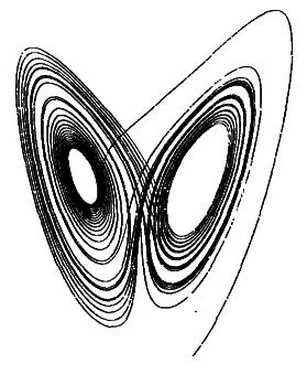
![Юрий Фролов - От инстинкта до разума [Очерк науки о поведении]](/books/27503/yurij-frolov-ot-instinkta-do-razuma-ocherk-nauki-o-thumb.webp)

